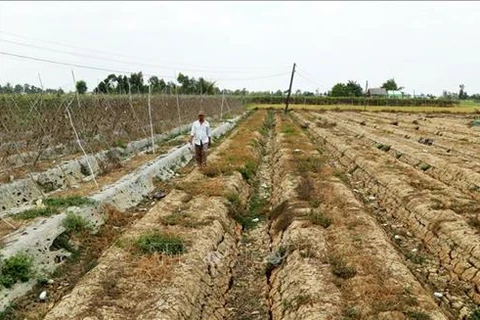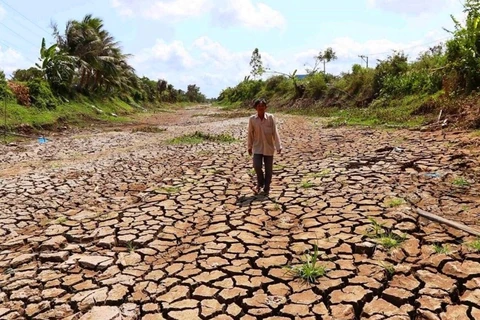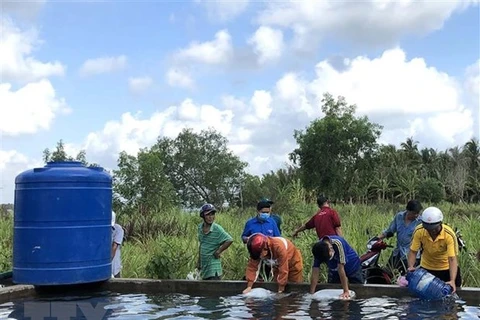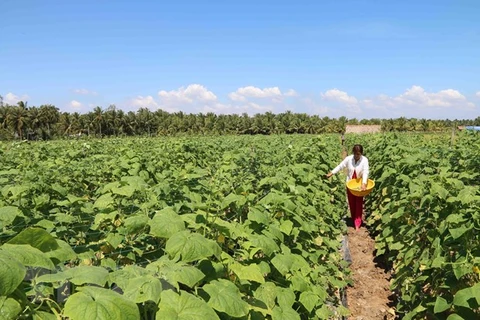Ben Tre (VNA) - The Mekong Delta province of Ben Tre, which is one of the most vulnerable areas to climate change in the region, should map out a plan for building an irrigation network and enacting measures against saltwater intrusion with a vision for the next 50 years, Vice Chairman of the National Assembly (NA) Phung Quoc Hien said at a working session with local authorities on July 8.
He advised the province to take into account various factors, from environmental protection to economic development, in the short and long terms, as well as have a plan for water storage and water resources protection.
With sea levels rising, signs of subsidence plus the adjustment of water resources in the upper part of the Mekong River will pose more difficulties for the province, Hien said, warning that some coastal communes may even be flooded.
He suggested Ben Tre change production methods and rearrange its population in response to saltwater intrusion.
Vice Chairman of the provincial People’s Committee Nguyen Huu Lap reported that the saline intrusion in the dry season of 2019-2020 affected most local socio-economic fields, from agriculture, aquaculture, and industry to construction, urban area building, tourism, and water supply. Total economic losses have been estimated at about 1.6 trillion VND (69 million USD) to date.
He said local authorities proposed the NA and Government arrange about 250 billion VND (10.7 million USD) from the State budget to invest in building freshwater reservoirs in coastal districts, and the NA Standing Committee consider issuing a resolution on water security in the Mekong Delta./.

Mekong Delta province faces severe water shortage
The Mekong Delta province of Long An, which has been hit by severe drought this year, needs more fresh water, but can only supply about 50 percent of demand from its 35 fresh water treatment plants and stations.























